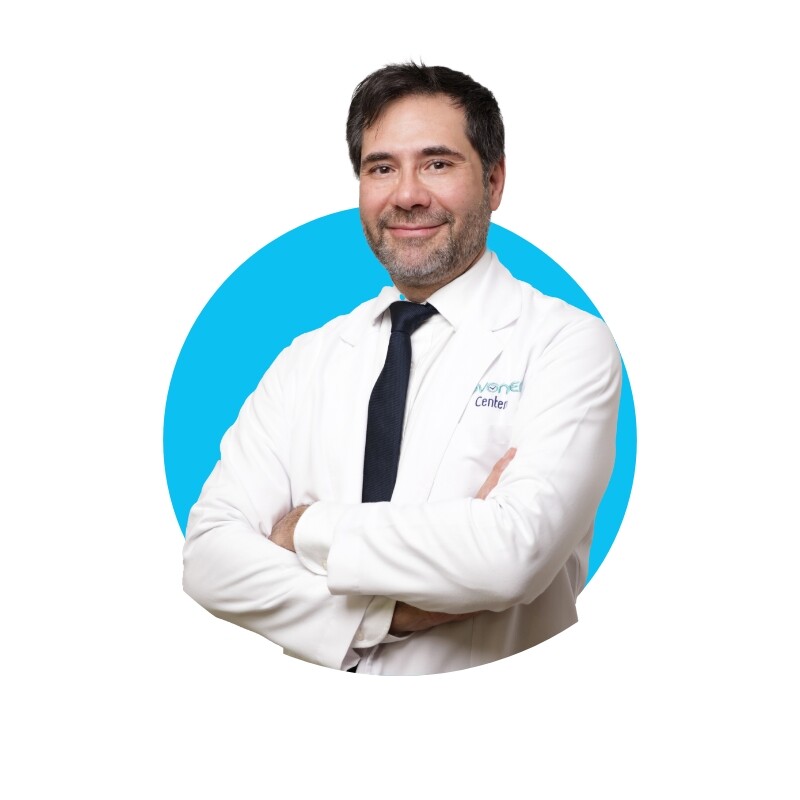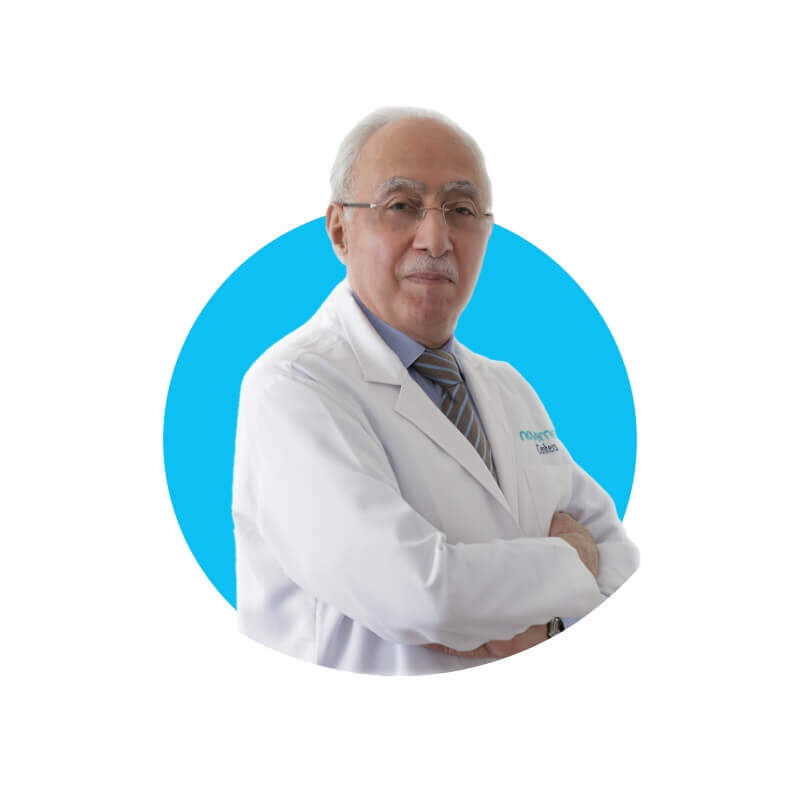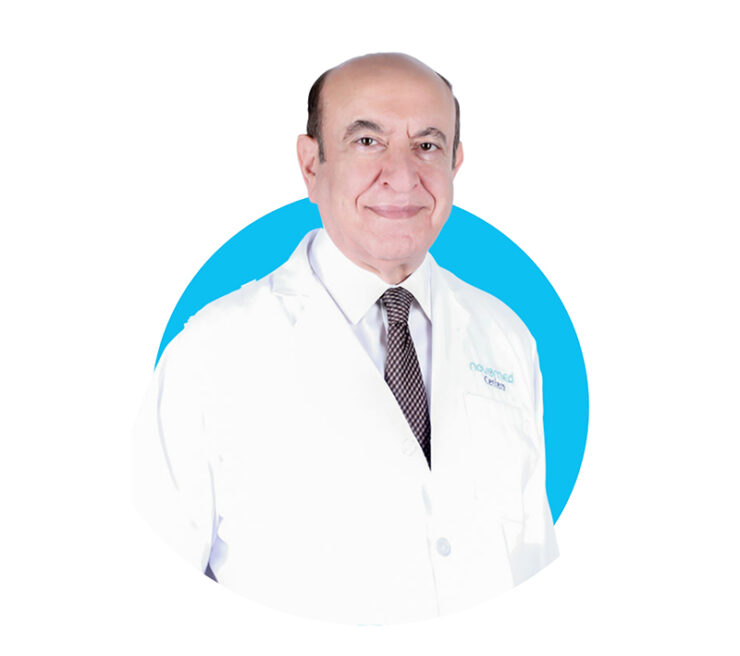ENT Specialist in Dubai
At Novomed, we gathered a team of experienced ENT specialists who can diagnose and treat a wide spectrum of ear, nose and throat conditions in adults and children. Whether you have an ear infection, breathing or swallowing difficulty, snoring problem, hearing loss, or dizziness, our otolaryngologists will help you get the best care and the appropriate treatment for your problem, whether medical or surgical.
Complete treatment and recovery plans at Novomed ENT Clinic will help you through every step of the healing process. Whatever your ear, nose or throat related condition, our ENT specialists will place you at the center of your treatment plan and come up with a solution that is perfect for you.
We provide treatment for:
- Ear disorders, such as external and middle ear infection, ear blockage and wax removal, hearing loss, Eustachian tube dysfunction, and balance or vertigo disorders.
- Nasal problems, such as sinusitis, blocked nose, allergic rhinitis, deviated nasal septum or growths such as polyps, turbinate hypertrophy, breathing difficulties and others.
- Oral cavity infections like ulcers, blisters, oral thrush, changes in taste or sensibility in the tongue, tongue tie and assessment of speech difficulties.
- Throat problems, including voice issues, tonsillitis, sore throat, salivary gland disorders and swallowing difficulties
- Snoring or sleep apnea
- Infections of the head or neck, lumps in the neck including the thyroid
- Many other ENT issues
The Eustachian tube connects your middle ear to the upper throat and back of the nasal cavity. This tube plays an important role by ensuring that air pressure in the middle ear is the same as it is outside the body. It also keeps the middle ear well ventilated so it stays clean and dry. If the tube becomes blocked and air cannot flow freely, this can cause the middle ear to become damp, stagnant and warm, making it highly susceptible to infection. An infection causes fluid to build up in the middle ear, causing pain and possible difficulty hearing. Factors causing blockage of the Eustachian tube include:
- Colds and flu
- Sinus infections
- Allergies
- Swollen adenoids
- Smoking
- Changes in air pressure
Sleep apnea is a potentially serious disorder where your breathing stops and starts repeatedly during sleep. The most notable signs of this disorder are loud snoring and feeling tired even after getting a full night’s sleep.
The three main types of sleep apnea are:
- Obstructive sleep apnea. In this type, the muscles in the back of the throat relax, causing a blockage in the airway
- Central sleep apnea. This type occur when your brain doesn’t send proper signals to the muscles that control your breathing, causing breathing to stop over and over during sleep.
- Complex sleep apnea syndrome. In this case, the patients experience a combination of obstructive sleep apnea and central sleep apnea symptoms.
You should see a doctor if you suspect that you have any of these forms of sleep apnea. Sleep apnea can cause serious problems that can affect your health, such as increasing your risk for stroke, high blood pressure, heart failure, obesity, diabetes and more.
In particular, consult a doctor if you notice – or your partner notices – that you are:
- Snoring loudly enough to disturb the sleep of others or yourself
- Waking up during the night gasping for air or choking
- Pausing intermittently in your breathing during sleep
- Excessively drowsy in the daytime
When sinuses fill with fluid and become blocked, germs can grow and cause an infection. While acute sinusitis is temporary, chronic sinusitis lasts 12 weeks or more. Conditions that can cause blocked sinuses include:
- Nasal polyps: These soft growths can block the sinuses or nasal passages.
- Deviated septum: If this wall between the nostrils is not straight, it might block or narrow the sinus passages.
- Respiratory tract infections: The common cold and other infections in your respiratory tract can thicken and inflame your sinus membranes and block mucus drainage. These infections can be fungal, viral or bacterial.
- Allergies: Inflammation that occurs with allergies such as hay fever can block your sinuses.
- Medical conditions: The complications of gastroesophageal reflux, cystic fibrosis, and some diseases related to the immune system can result in nasal blockage.
Nasal polyps are growths on the lining of your sinuses or nasal passages. They are non-cancerous and painless, but can still lead to problems. While smaller polyps might cause no symptoms, larger growths or groups of polyps can lead to breathing problems, impaired sense of smell, frequent infections, and blockage of your nasal passages. They are more common in adults than children and it is believed they are cause by chronic inflammation from, for example, asthma, drug sensitivity, or recurring infections. Medications can often eradicate or reduce the size of nasal polyps, but surgery might be needed to remove them. Even after they are eliminated, nasal polyps can come back.
If you have any inquiries about our ENT Clinic or want to book an appointment with our ENT Specialist, call us on the toll-free number 800 (NOVO) 6686 or click on the live chat icon at the bottom of the screen.




